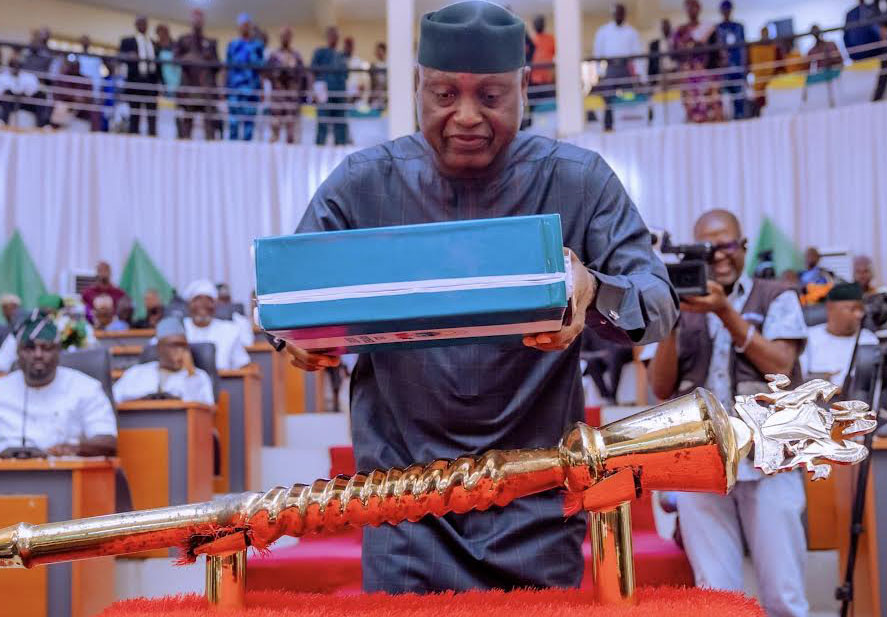
Ekiti State Governor, Biodun Oyebanji, has signed the ₦375.79 billion 2025 budget into law.
The budget comprises 51% Recurrent Expenditure and 49% Capital Expenditure, reflecting a balance between operational costs and development projects.
Key Highlights of the Budget
Priority Areas: Agriculture and food security, wealth creation, and infrastructure development were emphasized as key focus areas.
Economic Transformation: The budget aims to consolidate ongoing projects, complete infrastructure initiatives, and drive economic growth across Ekiti communities.
Public Input: Governor Oyebanji noted that the budget was prepared with extensive consultation with stakeholders to align with the state’s economic realities.
Governor Oyebanji attributed improved state revenue to economic reforms initiated by President Bola Tinubu’s administration, which have bolstered allocations from the Federation Account.
Enhanced IGR: The Ekiti State Internal Revenue Service (EKIRS) was commended for its effective revenue strategies without additional burdens on residents.
Revenue House: The government approved the construction of an Ekiti Revenue House to further boost IGR efforts.
Commitment to Workers and Pensioners
The governor highlighted strides in improving workers’ welfare and addressing pension liabilities:
Gratuity Payments: Over ₦5.6 billion has been paid to reduce the state’s gratuity backlog by four years.
Pension Payments: Monthly pensions remain up to date.
Collaboration with the State Assembly
Governor Oyebanji praised the 6th State Assembly for its partnership and support in passing the budget, urging continued collaboration for the state’s progress.
The governor assured residents that the administration would strive to meet revenue targets in 2025 to implement the ambitious projects outlined in the budget. Efforts will also focus on strengthening partnerships with development organizations to attract further support for the state’s growth initiatives.


